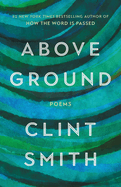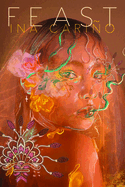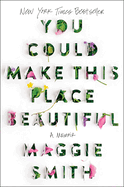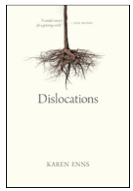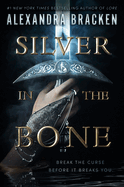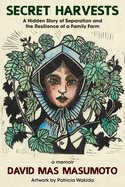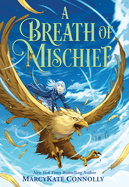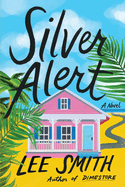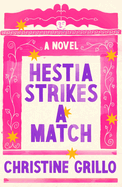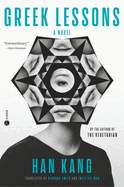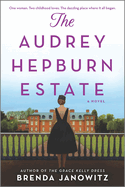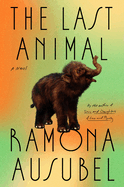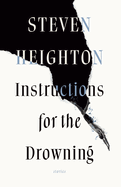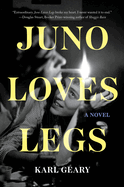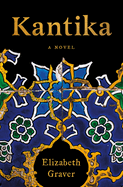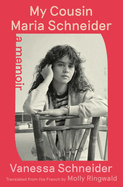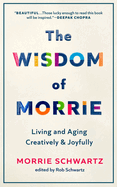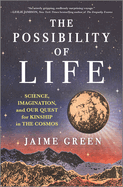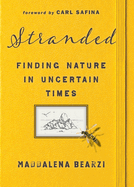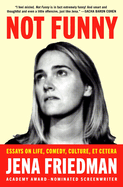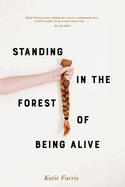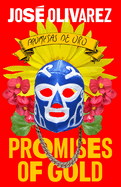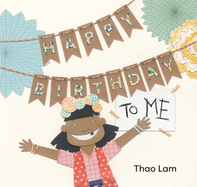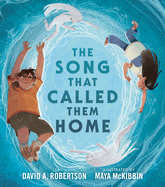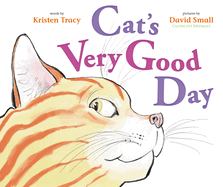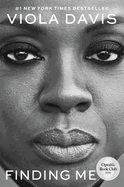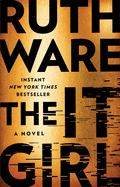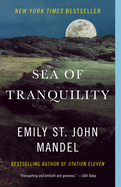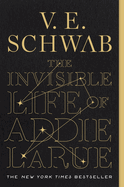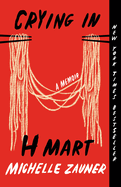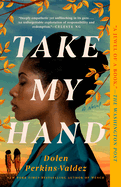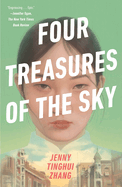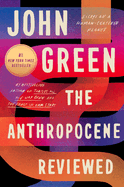Friday, April 21, 2023
Welcome to our celebration of Poetry Month! Among our reviews this week: Above Ground, "a tender yet powerful collection" of 70 poems from Clint Smith, "center[ing] his experience as a Black man, a husband, and a father in a rapidly changing... world"; Dislocations by Canadian poet Karen Enns, which "skillfully evokes a rural upbringing and revels in the beauty of nature and music"; and Feast, the debut poetry collection from Ina Cariño, drawing from life in the Philippines and the U.S. in "a true banquet for the senses."
Poet Maggie Smith in The Writer's Life talks about her memoir in vignettes, You Could Make This Place Beautiful, and the way "I enter every writing project as a poet," whether it's a book review or an e-mail.
Silver Alert
by Lee Smith
Prolific, masterful storyteller Lee Smith (Guests on Earth; Dimestore) returns to the Florida Keys in her sparkling, tender-hearted novel Silver Alert. For 12 years, Key West resident Herb Atlas--gruff, no-nonsense and married several times--has been taking "great care" of his "last wife," Susan--a passionate lover of the arts and an artist herself--who started to exhibit symptoms of early-onset dementia at age 58. With Herb now 83 and suffering health problems of his own, and Susan's condition progressing more rapidly now that she's 70, Herb hires the upbeat and free-spirited Renee to help out.
Renee, a manicurist who lives in a trailer park, is struggling to escape a dark, secret past and reinvent her life. She becomes a friend and companion to Susan, and her lively presence reinvigorates the emotional well-being of the Atlases. However, when Herb's overbearing and domineering adult children and half-children descend on Key West and stage an intervention to help the burdened couple, things take a dramatic, unexpected turn. "Everybody agrees. Susan ought to be in a facility now"--except Herb. Feeling powerless and boxed in by the limits imposed by his obstinate children, who take over and orchestrate decisions for his life and for Susan's care, Herb ultimately rebels. On a lark, he sets off in his prized Porsche sportscar with Renee. The two go on the lam--a wild, liberating road trip that will change their lives forever.
Smith has crafted a remarkably well-rounded, empathetic, serio-comic story. Silver Alert is a novel that takes readers on a deeply meaningful, unforgettable ride brimming with hope. --Kathleen Gerard, blogger at Reading Between the Lines
Discover: In this sparkling serio-comic novel, an ailing wife and her elderly husband, their overbearing kids and a manicurist are trying to eke out a new life.
Hestia Strikes a Match
by Christine Grillo
Christine Grillo's debut novel, Hestia Strikes a Match, is sure to strike a chord with its pinpoint take on political polarization, modern love and generational divides, all delivered in a quick-witted and big-hearted narrative.
Hestia Harris is looking for love again after losing her husband to the American Civil War. The year is 2023, and a new civil war has arisen in the U.S. following the death of President 46. Twelve states have seceded. Instead of bloody battles between formal militaries, the war happens via digital misinformation and guerilla attacks on citizens and infrastructure. Hestia's husband joined a pro-Union paramilitary group, and hasn't contacted her in more than a year. Sort-of single in Baltimore, Md., a border state prone to infrastructure attacks, former journalist Hestia works at a retirement home where she leads residents in recording their lived history. Divorce paperwork would be "such an ass-ache," so she hits the dating apps while still technically married. Walking with Hestia on the rocky road of love are younger coworker Sarah, who informs her that "Happiness is an inside job," and Mildred, a no-punches-pulled octogenarian at the retirement village. Underlying Hestia's quest for companionship is a growing fracture in her family as her emotionally distant parents relocate into confederate territory.
The political becomes painfully personal for Grillo's heroine in this neatly tweaked version of the modern U.S., where holiday table arguments have blossomed into bloodshed. Mildred sagely explains, "America's polarized because some people like change, and some people don't. And everything is changing." Hestia's first-person narration sparkles with humor. Grillo will hook readers with her wit and leave them reeling in a shocking ending that brings home the story's considerable emotional heft. --Jaclyn Fulwood, blogger at Infinite Reads
Discover: The titular heroine attempts to navigate dating, friendships, and family dynamics during a modern U.S. civil war in this witty but heartfelt novel.
Greek Lessons
by Han Kang, transl. by Deborah Smith and Emily Yae Won
Greek Lessons, written by award-winning Korean novelist Han Kang (Human Acts; The Vegetarian) and translated by Deborah Smith and Emily Yae Won, is a lyrical and sensitive novel about intimacy in the face of loss. At first, a Korean-born, German-raised Greek language teacher doesn't know what to make of the sharp-boned, darkly clad woman in his classroom who never speaks. But soon an unlikely bond forms between the teacher, as he slowly loses his eyesight, and the woman, who long ago lost her language. While he reflects on the estrangement he felt in every place he's called home, she struggles to open up to someone new after having lost her mother, her son, and her voice.
As in The Vegetarian, Han captures an intimate portrait of personal anguish at the same time as she evokes a larger social milieu of modern alienation and cultural loss. The poetic language of Greek Lessons leans more toward the tender than the raw, unearthing not only pain but yearning. The novel's descriptions of loss are often haunting: "She would stop reading and swallow, her throat dry. Like those times when she had to immediately press down on a cut to stop the bleeding, or, on the contrary, to strain to squeeze out blood and prevent bacteria from entering her bloodstream." They are also so deeply sensorial that they communicate a warmth of bodily connection at the same time as they announce pain. By describing "the sound of two people's lips pressing together, pulling part," Han draws readers close, even when the novel's interests are philosophical. --Alice Martin, freelance writer and editor
Discover: A sensuous translation of an exquisitely perceptive novel, Greek Lessons is another profound meditation on alienation, loss, and passion from renowned writer Han Kang.
The Audrey Hepburn Estate
by Brenda Janowitz
Inheritances, family heirlooms, and tributes to iconic actresses are hallmarks of Brenda Janowitz's emotionally moving historical fiction. A priceless family jewel defines an epic love story in Janowitz's The Elizabeth Taylor Ring. The history behind a royal wedding dress unearths hidden desires that change the lives of three generations of women in The Grace Kelly Dress. And in The Audrey Hepburn Estate, Rolling Hill--a once-stately manor located on Long Island that served as inspiration for the Billy Wilder film Sabrina--harbors startling family secrets.
Emma Jansen, a single, 32-year-old successful chef, returns to the place where she grew up to cater a party. Her parents had once worked at the Rolling Hill estate, which will soon be demolished. There, she reconnects with her first love, Henry van der Wraak, the grandson heir of the original estate owner, and her best friend from childhood, Leo L'Unico, now a real estate developer whose father served as a driver at the estate. The three were raised as siblings, and, after years of separation, they reunite. But the place that once anchored their early lives suddenly unearths deceptions from the past. What will it take for them to reconcile difficult memories and feelings?
The movie Sabrina and Audrey Hepburn's real life serve as inspiration for this painstakingly researched historical drama turned love story, which frames a beautifully rendered portrait of how the past and the true meaning of "home" can come to define the future. --Kathleen Gerard, blogger at Reading Between the Lines
Discover: In this emotionally moving love story, secrets at old estate force three friends to reconcile family history and their feelings for each other.
The Last Animal
by Ramona Ausubel
In The Last Animal, Ramona Ausubel (Awayland) tells the wondrous story of two teenaged daughters and their widowed mother in the aftermath of their father's death. Eve and Vera have always been close, but since their father died, it's felt increasingly like all they have is each other. Their mother, Jane, is doing the best she can, but she's also busy trying to carve out a space for herself in a male-dominated biology field. When Eve and Vera are forced to tag along on their mother's scientific expedition to Siberia, they think it will just be another few months of watching her be patronized by her colleagues. That is, until the girls unearth a rare mammoth, entirely intact, in the permafrost. What follows is a fantastical journey into the kind of life that may or may not be possible after death, and the equally fantastical experience of becoming a woman in a world of men.
The setting of The Last Animal is strikingly recognizable yet laced with magic, a place where things Ausubel's characters can barely imagine exist just beneath the surface of everyday life, but the things they want most remain ever out of reach. This, combined with Ausubel's evocative prose, gives the novel a perpetual sense of longing. Though Eve, Vera and Jane's relationships shift over the course of the novel, there is a continuity of feeling that grounds the reader in Vera's perspective. Her ongoing sense of being both an essential piece of her sister's life and always on its outskirts captures the novel's overall commitment to what it means to be on the fringes. --Alice Martin, freelance writer and editor
Discover: A fascinating exploration of a family fighting to find themselves and each other after encountering the unknown, The Last Animal is a vulnerable meditation on what binds us.
Instructions for the Drowning
by Steven Heighton
The literary world lost a considerable talent when award-winning Canadian writer Steven Heighton (The Shadow Boxer) died of cancer at age 60 in April 2022, but those who have enjoyed his work will appreciate that he has left behind Instructions for the Drowning: Stories, his third collection. In these 11 expertly constructed and memorable short stories, he excels at capturing his subjects at moments of maximum stress, in the process illuminating different aspects of the human character.
Although there's no thematic unity to the entire collection, several stories focus on the relations between men and women. That's true of the title story, about an incident during a lake vacation which exposes the tension between a couple whose marriage is fraying over their inability to conceive. "Expecting" is the story of another couple, on the verge of the birth of their first child, whose discovery of a stranger's wallet sparks a crisis that brings to the fore the husband's "old assumption that at some point, under some unforeseeable, fatal pressure, the elaborate device of his persona would crack." In "Professions of Love," a skilled plastic surgeon who fancies himself the "deft, silver-haired Inverter of Time," wrestles with the ethics of operating on his aging wife when an unexpected opportunity to do so presents itself.
All the stories in Instructions for the Drowning reflect the same careful use of language and attention to efficient development of character. Barring a posthumous collection, this will be the final addition to Steven Heighton's body of short fiction, and it's one that will evoke gratitude amid the sadness over his premature passing. --Harvey Freedenberg, freelance reviewer
Discover: The 11 well-crafted stories in Heighton's final collection are worthy models of the contemporary short story.
Juno Loves Legs
by Karl Geary
Juno Loves Legs is a sensitive, scarred coming-of-age story by Karl Geary (Montpelier Parade), set in a troubled housing estate and nearby Dublin in the 1980s. Amid poverty, a harsh and judgmental Catholicism, family dysfunction, and personal torment, preteens Juno and Seán form an unlikely but sturdy friendship that will carry them through trauma and violence and--if they're lucky--into a wider, freer life.
Juno's harried mother takes in sewing alterations for the neighbors, who look down on her family's poverty and cheat her out of her meager pay. Her father drinks his days away. Her older sister is absent following her own particularly awful childhood. Catholic school is a trial for a girl as headstrong and underprivileged as Juno. Then she meets Seán, who is shockingly clean but whose home life is equally, if differently, disturbed. For his awkward height she dubs him Legs, and they form an alliance, until an extraordinary act of violence tears everything apart. Years later in Dublin, with new challenges, the young adult versions of these childhood friends attempt a beautiful, possibly doomed, second start.
Juno's first-person voice is angry, indignant, righteous, both jaded and pitifully innocent. She blusters to hide her vulnerability, where Legs leaves his tender side open and allows the blows to land. Juno Loves Legs is tender and heartbreaking. Young friendship takes on all the world's challenges--love, art, family, the simple and overwhelming task of survival--with tragic, poignant results. Readers will find Juno's bravado and Legs's persistent sweetness unforgettable. --Julia Kastner, librarian and blogger at pagesofjulia
Discover: In this bittersweet coming-of-age story, scrappy childhood friends from Dublin's outskirts grow tenuously into young adults with only one another for support.
Kantika
by Elizabeth Graver
Elizabeth Graver's epic fifth novel, Kantika, spans countries and continents. The feisty Rebecca Baruch Levy (née Cohen) is born into a wealthy, elite family, but faces multiple challenges with courage and grit as she carves out a life of her own.
Graver (The End of the Point) begins her novel in 1907, during "the beautiful time" in Constantinople, when Rebecca is a child attending the local French Catholic school and playing with her best friend, Rahelika. This idyll, of course, does not last; when World War I breaks out, the nuns' school closes abruptly and Lika's family leaves for the U.S. Nearly a decade later, Rebecca's family is also forced to flee their home city (now named Istanbul) for Barcelona. Graver skillfully portrays the effects of cataclysmic change on a family, the ways some people embrace changes and challenges, and others shrink from them.
After years as a dressmaker in Barcelona and a first marriage that produces two sons but ends in widowhood, Rebecca embarks on an ocean voyage to Cuba, to marry Sam Levy, a man she has not yet met. When they arrive in New York City to begin their life together, Rebecca meets Sam's daughter, Luna. Motherless and severely disabled, but as stubborn as Rebecca herself, Luna will become Rebecca's nemesis, her constant companion and, eventually, something like her friend.
"The past feels heavy, the present thin," Rebecca muses after Lika's departure for the U.S. The phrase is a fitting description for Graver's novel, where the weight of the past and the ephemeral nature of the present tangle together to create a bewitching whole. --Katie Noah Gibson, blogger at Cakes, Tea and Dreams
Discover: Elizabeth Graver's complex, beautiful fifth novel follows a Sephardic Jewish woman as her life crosses multiple continents.
Biography & Memoir
You Could Make This Place Beautiful: A Memoir
by Maggie Smith
"This isn't a tell-all," poet Maggie Smith (Goldenrod; Keep Moving) writes in the opening pages of her brilliant, beautiful memoir, You Could Make This Place Beautiful. It can't be, she argues, because she is not an omniscient narrator, she cannot know all, and because some of what she offers in the pages that follow is, in fact, an account of what she does not know. It's a "tell-mine" instead, a version of the pain and hardship brought on by the dissolution of her marriage--but also found in the marriage itself, in a life spent making herself small enough to fit inside of an institution and a partner that did not serve her, not really, or offer room for growth and expansion.
You Could Make This Place Beautiful could easily be described as brutal in its telling. But in that darkness, Smith finds the promised beauty: in the soft fuzziness of her young son's earlobe, in learning to rollerblade during lockdown, in the cake dropped off by a neighbor on her first Christmas morning waking up without her kids. In these tellings, her memoir remains somehow soft in its brutality, yearning toward what is most human in us all: a desire to see and be seen, to understand and be understood. "I'm trying on so many metaphors, pushing toward understanding."
You Could Make This Place Beautiful makes a gift out of Smith's pain, tied up not in a neat bow, but offered with grace, humility and wonder as something to be treasured and held up gently, to see what it may reflect of ourselves when it touches the light. --Kerry McHugh, freelance writer
Discover: A brilliant and beautiful memoir from poet Maggie Smith reflects on the pain of divorce, and the unexpected beauty found in (re)building a life after the dissolution of a dream.
Secret Harvests: A Hidden Story of Separation and the Resilience of a Family Farm
by David Mas Masumoto, illus. by Patricia Miye Wakida
David Mas Masumoto has built a remarkable career as a third-generation organic peach and grape farmer, which has inspired his award-winning books, including Epitaph for a Peach (1995). Secret Harvests again features "the farm [he] had once rejected," which was initially created and nurtured by his Japanese immigrant forebears after enduring the imprisonment of Americans of Japanese descent during World War II. The one person never to call the family farm "home" was a maternal aunt, his mother's older sister who was separated from the family for 70 years.
"Ghosts inhabit our family history," Masumoto writes. "One of the ghosts who inhabit our farm is Shizuko, an aunt with an intellectual disability." In 2012, a hospice worker contacted Masumoto about Shizuko, who was, at age 92, "alive, barely." The kind stranger managed to find Masumoto through the obituary he wrote for his father two years earlier. Masumoto had been told Shizuko had died in her youth. To learn otherwise "is disruptive and disturbing, a departure from my understanding of family." As a writer, he seeks answers: "I try to capture the mosaic of her life as told through family stories combined with research, visits, and interviews." What emerges is a portrait of "thriving resilience."
Masumoto writes with an open vulnerability, intertwining what he can puzzle together of Shizuko's missing past with generations of their shared family's intimate experiences--of alienation, isolation, reunion. Stunning black-and-white linoleum woodcuts by artist Patricia Miye Wakida--whose Japanese American parents, too, were imprisoned during World War II--enhance Masumoto's text. Together, the pair present a spectacular, symbiotic homage to storytelling, both personal and historic. --Terry Hong, BookDragon
Discover: David Mas Masumoto's empathic homage to a maternal aunt, missing for 70 years, is at the core of this superbly affecting exploration of family storytelling.
My Cousin Maria Schneider
by Vanessa Schneider, transl. by Molly Ringwald
Cinema's appalling treatment of the French actress Maria Schneider (1952-2011), especially at the hands of director Bernardo Bertolucci, is the subject of My Cousin Maria Schneider, an exceptional memoir written by the actress's cousin Vanessa Schneider, a journalist in France, and translated by Molly Ringwald, who probably knows a thing or two about cinema's treatment of women. Bertolucci cast 19-year-old Schneider opposite Marlon Brando in 1972's Last Tango in Paris. The notorious rape scene was a surprise Bertolucci concocted to get a raw reaction out of unsuspecting Schneider. Her response to that trick, for which Bertolucci remained unrepentant, was to detest him for the rest of her life.
The experience also led to Schneider's battle with heroin and her difficulty finding future roles. Vanessa writes with affection about her cousin and demonstrates that Schneider was far more than the person tabloid journalism insisted on depicting. It's also a portrait of Vanessa's father, a Maoist hoping for revolution, and her mother, whose "skin is dark" and "wears her hair in an Afro that frames her beautiful face." A theme of the book is the difficulty some groups have fitting in with dominant cultures, whether it's "the inequality of men's and women's treatment in the film world" or darker-skinned people like Vanessa going to school with young men who whisper that she's "too dark" for their taste. This memoir is a moving tribute to an actress who deserved better and a cri du coeur for greater tolerance in all aspects of life. --Michael Magras, freelance book reviewer
Discover: In this exquisite memoir, Vanessa Schneider chronicles cinema's appalling treatment of her cousin Maria (Last Tango in Paris) and presents a nuanced portrait of an actress who deserved better.
Psychology & Self-Help
The Wisdom of Morrie: Living and Aging Creatively & Joyfully
by Morrie Schwartz and Rob Schwartz, editor
Since his death in 1995, Morrie Schwartz--author, charismatic sociology professor, and social justice warrior--has experienced a vibrantly rich literary life. He posthumously became famous 25 years ago thanks to his former student, Mitch Albom, and his inspiring memoir Tuesdays with Morrie. The book explored Albom's friendship with Schwartz and espoused Schwartz's down-to-earth, personal, societal, and philosophical values--what the 78-year-old had learned about life as he faced ALS, a terminal disease. In The Wisdom of Morrie, Rob Schwartz, his son, has edited his father's last book, written before he became ill during the years 1989 to 1992.
Keeping Morrie's lively voice intact, this deeply empowering, easy-to-read narrative blends Morrie's philosophical wisdom, humor, and Buddhist-like mindfulness with personal vignettes and parable-like anecdotes of others. Captivating stories demonstrate how the aging process--despite fears, the onset of limitations, and diminished opportunities--can actually become an exciting period of great awakening, meaning, and purpose. Morrie offers practical tips and techniques, along with positive, motivating strategies that shatter stereotypes and misperceptions, encouraging others to grow, adapt, and develop, while expanding awareness, and dispelling apprehensions about growing older and facing mortality. Readers will reflect on issues such as dependency, solitude, letting go, and ways to cultivate more social and spiritual connectedness as a means to gain more control over life.
Morrie may be gone, but his wisdom--and Morrie's eternal quest to help others improve their lives--endures. This timeless trove of Morrie's insightful, inspiring writings opens a gateway of hope, bolstering purposeful self-esteem for readers of all ages. --Kathleen Gerard, blogger at Reading Between the Lines
Discover: Author, professor, and social justice warrior Morrie Schwartz shares posthumous, empowering wisdom on the hopeful, great awakening of aging.
Science
The Possibility of Life: Science, Imagination, and Our Quest for Kinship in the Cosmos
by Jaime Green
Jaime Green (editor of the Best American Science and Nature Writing series) tackles the premise of a question that has tantalized humanity for centuries in the fascinating The Possibility of Life: Science, Imagination, and Our Quest for Kinship in the Cosmos. Drawing on decades of research in SETI, the search for extraterrestrial intelligence, and from interviews Green conducted with eminent scientists (Abel Méndez, Katie Slivensky, Jason Wright, and more), each of the book's six chapters delves into one factor underpinning the possibility of finding life beyond our big, blue planet. But the book is not just a glimpse into an often-misunderstood area of scientific research; it is an exploration of the very meaning of life, humanity, personhood, consciousness, and existence.
Green uses classics of science fiction (such as Carl Sagan's Contact, James L. Cambias's A Darkling Sea, and Ted Chiang's "Story of Your Life") as a touchstone through which to think about concepts like evolution, intelligence, technology, and the forms that extraterrestrial intelligent life might take aside from humanoid. As she points out, much of science fiction that is focused on extraterrestrial life is, in fact, concerned with questions of human existence, and her book about potential extraterrestrial life, likewise, reveals much about humanity's existence and concept of itself. Green's writing discusses intensely complex ideas in clear and engaging ways, and is endearingly childlike in its wonder and awe. Readers can't help but be swept along in her curiosity and excitement. --Dainy Bernstein, literature professor, University of Pittsburgh
Discover: The Possibility of Life, an exploration of life's origins and evolution on our planet, provides a fresh perspective on the possibility of extraterrestrial life.
Nature & Environment
Stranded: Finding Nature in Uncertain Times
by Maddalena Bearzi
Maddalena Bearzi (Dolphin Confidential) developed a deep love for marine fauna during childhood summers in Sardinia. She cofounded the Ocean Conservation Society, which monitors Pacific populations of whales and dolphins, when she moved from Italy to Los Angeles in the 1990s. In Stranded, her third book, the marine biologist, temporarily confined to land by Covid-19 lockdowns, adopts a different tactic for exploring animal behavior: "an urban safari in my backyard and neighborhood." These nature essays exemplify evenhandedness, curiosity, and close observation. Bearzi decries her neighbors' unwarranted alarm over coyotes. The squirrels and lizards that her ungainly mutt, Genghis, longs to chase remind her of the need to live with invasive species. A local opossum teaches her to value unlovely creatures. From wasps to night-blooming flowers, her interest is wide-ranging. Her winsome black-and-white sketches head each chapter, too.
Bearzi realizes that she can connect with her surroundings "even without leaving home." She replaces her lawn with succulents and other drought-resistant native plants. Gardening is a relaxing pastime and a connection to her mother while they are separated. As a behavioral ecologist, the author views even Genghis as a subject of study, recording how he reacts to humans in masks. Nearly a year later, preparing to go back out onto the water, Bearzi exposes the plight of captive cetaceans and the perilous state of the oceans. The book is a passionate primer to appreciating everyday nature: "we can find the wild all around us if we only choose to see it." --Rebecca Foster, freelance reviewer, proofreader and blogger at Bookish Beck
Discover: A marine biologist crafts passionate nature essays about the wildlife she observed in her backyard and neighborhood while temporarily stuck on land during Covid lockdowns.
Humor
Not Funny: Essays on Life, Comedy, Culture, Et Cetera
by Jena Friedman
It's no slight against comedian Jena Friedman to say that the title of her first book should be taken largely at face value. Not Funny: Essays on Life, Comedy, Culture, Et Cetera features not comedic essays but essential essays about comedy written by a woman who has been reporting for duty in a male-dominated and "comically unregulated work environment" for going on 20 years. Hilarious!
Together, the book's 16 autographical pieces chart Friedman's career path. She grew up in New Jersey in the 1990s and began performing stand-up in the mid-aughts. The job had its share of frustrations: wretched pay, predatory men, stupid questions. In one of the book's strongest pieces, "Brief Interviews with Hilarious Men," Friedman asks a handful of household-name male comics some of the questions she and other female comedians have been asked, but she flips the genders. Among the retooled questions: "When did you decide to become a male comedian?" and "Do you think men can be attractive and funny?"
In addition to stand-up, Friedman's work has included field-producing segments for The Daily Show with Jon Stewart and helming Soft Focus with Jena Friedman, which she describes as a "feminist prank show." "I wish that I could say I've encountered fewer predators as I've advanced through the ranks of this industry, but that would be a lie," Friedman writes. "I now just have more power and agency to avoid them." For an injection of power and agency, readers could scarcely do better than Not Funny. --Nell Beram, author and freelance writer
Discover: Jena Friedman's essential first book tells the (largely) serious story of how she forged a career in the male-dominated world of comedy.
Poetry
Above Ground
by Clint Smith
Following the astonishing success of How the Word Is Passed, his work of narrative nonfiction, author Clint Smith (Counting Descent) returns to poetry with Above Ground, a tender yet powerful collection centering his experience as a Black man, a husband, and a father in a rapidly changing, often tumultuous world. This hefty collection of 70 poems swings with almost disorienting speed between gentle observation ("Ode to the First Smile") and fiery critique ("Your National Anthem"), each entry lyrical and insistent that the fabric of a life is woven of all these things: family and culture, the personal and political.
Smith often uses the poetic voice to directly address his children, drawing upon the stories of generations before them, as he does in the brief "Legacy," a mere seven lines closing with, "Your paternal great-grandfather was a fist/ full of embers that never burned/ the ones he loved." In other poems, his perspective moves higher, viewing global issues through the lens of fatherhood, as in "We See Another School Shooting on the News," which concludes: "I am standing in a thunderstorm/ attempting to shield you from/ every jagged slice of yellow sky./ I am trying to inhale all the smoke/ from this burning world while/ asking you to hold your breath." Smith knows well the way dark and light must exist together, in poetry as they do in life, and Above Ground is full of the difficult beauty born of that truth. --Sara Beth West, freelance reviewer and librarian
Discover: Above Ground is a tender and powerful collection centering poet Clint Smith's experience as a Black man, a husband, and a father in a rapidly changing, often tumultuous world.
Feast
by Ina Cariño
In Feast, Ina Cariño's debut poetry collection, imagery of food and the body builds an evocative picture of childhood in the Philippines and, later, life in the United States. Autobiographical verse records a Filipinx coming of age, with memories of head lice, learning about puberty from a book, and, in the title poem, watching the slaughter of a suckling pig. In the teasingly erotic "Milk," the speaker encounters racist assumptions from a white boyfriend and his parents. "Triptych with Cityscape" introduces another recurring topic: treatment for mental illness in a Chicago hospital. Metaphors draw on food and colors. Sepia is the hue of memory; salt preserves trauma, but honey sweetens the outlook. Cariño's vocabulary is visual and tangible, as in "my lungs/ turned to wrinkled quinces." The poet's gaze often turns to the body: "Shingles" recalls caring for an ill grandmother, and "Birthstone" reveals that their mother kept in her jewelry box a piece of the umbilical cord that once connected them.
"Tongue" is a key word throughout the collection, referring by turns to a prized foodstuff, a body part, or a language: "surrendering to a new tongue/ is having mine sliced/ on the jag of expectation:/ language cut on sweetened rim." Snippets of Tagalog enhance the pleasing rhythms created by alliteration. For instance, a poem about the aftermath of a 1990 earthquake in Luzon includes the line "follow trails of flies to find the faceless under rubble." A true banquet for the senses, Feast is perfect for readers of Cynthia Miller and Nina Mingya Powles. --Rebecca Foster, freelance reviewer, proofreader, and blogger at Bookish Beck
Discover: Filipinx poet Ina Cariño's debut collection, rich with the language of food and the body, is a feast for the senses.
Dislocations
by Karen Enns
Dislocations, the fourth collection by Canadian poet Karen Enns (Cloud Physics) and part of the Oskana Poetry & Poetics series, skillfully evokes a rural upbringing and revels in the beauty of nature and music. The book opens on a still life of horse fields: "From here, the farm could be a map/ or a gameboard of neat squares./ Each square, fenced in, holds one horse,/ each horse has one trough, one blanket/ against the January cold." The alliteration and repetition form a calming chant. Sibilance and soothing rhythms carry throughout the volume. The multi-part "East of Here" spins scenes from Enns's growing-up years in Ontario. She remembers the hard domestic work of local Mennonites ("the shoes are polished,/ the Sunday shirts ironed and hung,/ the bread baked, the gardens hoed") and a wake she attended at age nine ("her last resting, her thin hands folded on her chest,/ the skirt close at her ankles, the black shoes tied,/ her good blouse").
"Ten Dislocations," yearning for knowledge and mourning losses, offers a contrast to earlier poems with its short stanzas and fragmentary phrases. One of its aphorisms could encapsulate the entire collection: "The ratio of love to grief/ we understood as music." Music and the natural world counterbalance sadness in "Piano Masterclass: Twenty-One Études" (Enns is a former classical pianist) and "Plateau," where trees are "mystics cowled with moss." Geese and sparrows fly through multiple poems. Updating the pastoral tradition, the bittersweet verse takes solace in music, nature, and the past. --Rebecca Foster, freelance reviewer, proofreader and blogger at Bookish Beck
Discover: Karen Enns's fourth poetry collection skillfully evokes a rural Canadian upbringing and extols the gifts of nature and music.
Standing in the Forest of Being Alive
by Katie Farris
Standing in the Forest of Being Alive, the debut collection from poet Katie Farris, has been rightly celebrated for the ways Farris explores her breast cancer in unflinching ways. But Farris's poems are also explorations of the whole body, often taking cancer as another lens through which to experience her physical self rather than the other way around. The title of "Woman with Amputated Breast Awaits PET Scan Results" indicates the concrete lived experience of the body with cancer, but the poem expands upon and contracts around that diagnosis and on the physical toll of waiting: "Help me to spell waiting? I forget. And whom/ can I tell how much I want to live? I want to live./ A stone, the waiting weights my body into stone:/ what's left, almost a palindrome." Repetition and word play combine to create a surprising effect: equal parts darkness and air, both the hummed tune and the steady drumbeat.
Besides the cancer, hunger and lust and pleasure over the dirt taste of beets are equally found in Farris's body, all evidence of the poet's effort "[to] train myself to find/ in the midst of hell what isn't hell." And, always, there is love and its intimacies: the lumpy mattress, the interrupted sleep, and the endless small arguments: "A pleasant row/ of rows, little tugs/ on the strings/ of our love,/ just enough/ to pull our days/ taut." Whether considering marriage or Emily Dickinson or the insufficiency of the American healthcare system, Farris's poems are similarly pulled taut, each one tangled and fully alive. --Sara Beth West, freelance reviewer and librarian
Discover: Katie Farris's poems are explorations of the whole body and often take her breast cancer as a lens through which to experience her physical self rather than the other way around.
Promises of Gold
by José Olivarez, transl. by David Ruano González
If poetry has taught readers anything over the years, it is that there are countless ways to write a love poem. José Olivarez (Citizen Illegal) demonstrates that truth in Promises of Gold. This collection is tender at times and raucous at others, but it is always about love: love of family, of heritage, of lovers, of food and, perhaps most poignantly, of friends. Olivarez explains in his author's note how he wanted to write a straightforward book of love poems but couldn't: "I'd be ignoring all the contradictions and messiness of the world we live in, all the ways in which love is complicated by forces larger than our hearts. I choose to bring the world and its chaos into these poems."
This collection, divided into 11 sections, is built of rhythmic structures so full of life that they fairly rise off the page. The elongated verses, much like prose poems, with short, punching lines assert an effortless conversational style. The love poems to his homies are brilliant--gentle and unexpected and often hilarious. And the traditional love poems like "Let's Get Married" capture the ordinary wonder of love: "i want to propose/ again & again. on a Wednesday because/ you did the dishes. on a Thursday because/ we woke up next to each other again. say yes./ say less. i'll be on one knee asking you/ to share in the delight of knowing each other." Bilingual readers will appreciate the Spanish translation by David Ruano González. --Sara Beth West, freelance reviewer and librarian
Discover: Promises of Gold is tender at times and raucous at others, but it is always about love: love of family, of heritage, of lovers, of food, and, perhaps most poignantly, of friends.
Children's & Young Adult
Silver in the Bone
by Alexandra Bracken
In Alexandra Bracken's bewitching YA contemporary fantasy, 17-year-old Tamsin Lark knows that if "all sorcery is half illusion," then "the other half, unfortunately, [is] blood-soaked terror."
Tamsin and her brother, Cabell, were abandoned as children by their reluctant Hollower guardian, Nash. Now Hollowers themselves, Tamsin and Cabell seek "legendary relic[s]" from the vaults of "long-dead" sorceresses, and Tamsin is determined to keep Cabell--and others--safe from the curse that turns him into a deadly hound. When Sorceress Madrigal challenges Tamsin to find the Servant's Prize (a ring capable of destroying any curse or enchantment) before rival Hollower and "Trust Fund" kid Emrys does, Tamsin believes this is "a chance--a real chance--to break Cabell's curse." Tamsin agrees to the challenge, even with the knowledge that the ring works only if claimed "by deadly force." Tamsin allies with Cabell, a sorceress named Neve, and, reluctantly, with competitor Emrys. The four race to otherworldly Avalon, where they find unspeakable horrors of dark magic gone wild.
While Bracken (The Dreadful Tale of Prosper Redding) based Silver in the Bone on the legend of King Arthur, she creatively makes the myth her own. Mesmerizing world-building and an action-packed quest set the stage for the wonderfully snarky Tamsin's hidden but ultimately heroic nature to shine through. Amid all the magic, the author weaves a spell of her own and ends with a whopper of a cliffhanger that will leave new readers and Bracken fans alike clamoring for book number two. --Lynn Becker, reviewer, blogger, and children's book author
Discover: This action-packed contemporary YA quest based on King Arthur legends unfurls in a world that's equal parts "illusion" and "blood-soaked terror."
A Breath of Mischief
by MarcyKate Connolly, illus. by Yuta Onoda
In the remarkable, memorable middle-grade fantasy A Breath of Mischief by MarcyKate Connolly (Shadow Weaver), a girl and her best friend embark on an urgent trip to find the Wind.
"The Wind claims me as their daughter, their windling, heir to their estate in the clouds." The Wind is "the one constant" in Aria's life. The girl spends her days floating in a cloud in the sky, reading the books the Wind brings her, and playing with her friend Gwyn, a gryphling. One morning when Aria wakes, the castle is firmly on the ground and she can't access her own "somewhat magical" Wind powers: "The Wind is gone." With Gwyn's help, Aria sets out to find the Wind. Along the way, the friends find more otherlings--children who, like herself, are attached to elements--and more dangers than she knew the world held.
A Breath of Mischief is an inventive and magical take on the four elements: air, water, earth, and fire. While some plot points may feel familiar, Connolly's characters stand out as wholly original and individually inspiring. She brilliantly reimagines the elements as characters without trapping them in earthly forms, using gender-neutral pronouns to avoid any false characterizations. And Aria is a mystery herself--not quite human, not quite elemental. A Breath of Mischief is a delightful and exhilarating heroic quest. --Kyla Paterno, freelance reviewer
Discover: When the Wind goes missing, windling Aria and her gryphling companion, Gwyn, embark on an urgent trip to find them.
Happy Birthday to Me
by Thao Lam
Kids attending a birthday party usually find it a joyous occasion; for the young narrator of Happy Birthday to Me, their birthday party is joyous... and scary... and annoying... and some other adjectives. Thao Lam (My Cat Looks Like My Dad) presents a zippy picture-book look at one gap-toothed kid's big day, and lays bare the even bigger emotions that can accompany it.
The child wakes their mom with a declaration: "I am excited." Nine wardrobe changes later, they announce, "I am.../ ready!" When their friends arrive, the protagonist hides behind their mom: "I am shy." Page after page, the child reports on their morphing feelings as the kids squirt each other with water ("I am daring"), bat at a piñata while blindfolded ("I am mad/ I am frustrated"), and so on. After the party, the child's mother lands on just the word for how they feel: "overwhelmed." Following a restorative cuddle, the child accesses a welcome emotion: despite being one year older, "I feel like me!"
Lam's chunky cut-paper collage art seems tailor-made for a birthday bash. Pages abound with eye-snaring geometric shapes: blocky wrapped presents, a triangular slab of cake, circular and oblong bubble-wand bubbles. Many scenes feature a cameo by a spiky-eared cat whose emotions seem to mirror the narrator's. Happy Birthday to Me offers the gift of amusement and reassurance to readers who have found that being the center of attention makes them feel... well, a whole bunch of ways. --Nell Beram, freelance writer and YA author
Discover: This picture book offers the gift of amusement and reassurance to readers who have found that being the center of birthday-party attention makes them feel a whole bunch of ways.
The Song that Called Them Home
by David A. Robertson, illus. by Maya McKibbin
In the dazzling picture book The Song that Called Them Home, a note from author David A. Robertson (The Misewa Saga) explains that Indigenous communities across Turtle Island (North America) believe in the existence of "two humanoid races on Mother Earth": the "humans like you and me" and the "Memekwesewak (Meh-meh-gwee-see-wack), or little people." Robertson, a member of the Norway House Cree Nation, and artist Maya McKibbin (Swift Fox All Along), who identifies as "Two-Spirited Ojibwe, Yoeme, and Irish settler," create here a compelling and dynamic adventure featuring young humans and the mischievous Memekwesewak.
Siblings Lauren and James go "on a trip to the land with their moshom" (grandfather). While Moshom naps at the lake's edge, Lauren and James slip into the canoe to catch a fish for supper. Sudden waves crash against the canoe, and the two tumble overboard. The ghostly white Memekwesewak, who "live between rocks" and "in the rapids," lure James away under the water. Lauren--of course--follows. The Memekwesewak pull the children into a joyful, nearly irresistible dance and the minutes turn "into hours that turn... into days." Luckily, the familiar "thum thump" of Moshom's drum draws the siblings home.
Robertson combines prose and poetry, strategically integrating rhyming couplets, as if emphasizing the playful, albeit perilous, nature of the Memekwesewak. McKibbin's vividly saturated digital art is a visual feast throughout, adding a layer of wordless narrative: family bonds shown through outstretched hands; identity examined through the siblings' nongendered presentations. The potent partnership of author and artist skillfully honors and celebrates both family and folklore. --Terry Hong, BookDragon
Discover: An Indigenous Canadian duo vividly present two siblings, swept underwater by mischievous Indigenous spirits, who are drawn back home by the familiar rhythms of their grandfather's drum.
Cat's Very Good Day
by Kristen Tracy, illus. by David Small
Cat lovers everywhere will recognize the impish behavior of the entertaining feline protagonist in Kristen Tracy's Cat's Very Good Day. In a series of smoothly flowing rhyming couplets, Tracy captures the antics of one wily adult cat, brought to life on the page by David Small (Long Road to the Circus) as a striped ginger tabby.
How precisely does a cat define a "very good day" anyway? Well, the wildly expressive cat is a "sunrise lounger. Piano-key pounder," as well as a "dollhouse fiddler," and a "toilet-bowl dribbler." But destroying a dollhouse and drinking from the toilet isn't even the half of it: during the morning hours, the cat wreaks havoc by digging in a potted plant and scratching the sofa. After the cat is unceremoniously dropped outside, it stalks the neighborhood and gets in trouble with a mama squirrel.
Tracy (I Am Picky) structures the story with repeated commentary on the feline's day. "What a lovely" and "happy day" follow the cat's morning antics. Later, readers learn the cat has had a "wild day" outdoors and a "stressful day" after some early-evening storms. Small, who nails the body language, animates the cat's adventures with nimble lines, soft pastels, and plenty of action, and child readers will delight in the cat's naughty behavior. The end of the day finds the cat seeking the warm pillow of the child's bed: "Moonlight cuddler. All-night snuggler." Unconditional love is at the receiving end of a day's mischief, something to which human children can relate. This, after all, makes for a "very good day." --Julie Danielson, reviewer and copyeditor
Discover: Kristen Tracy and David Small capture the ups and downs of a cat's day with smoothly rhyming couplets and fine-lined, softly colored illustrations.
New in Paperback
The Writer's Life
Maggie Smith: A Poet's Memoir in Vignettes
 |
|
| (credit: Devon Albeit Photography) | |
Maggie Smith is a poet, author, and creative writing teacher whose award-winning poetry collections include Good Bones and Goldenrod. Her book Keep Moving offered notes and musings on loss, creativity, and change. Smith has an MFA from Ohio State University and lives in Ohio with her two children. In her memoir in vignettes, You Could Make This Place Beautiful (Atria, reviewed in this issue), she explores grief, loss, divorce, and coming into one's self as an adult.
You are perhaps best known for your poetry, which explores many of the same themes found in your memoir, You Could Make This Place Beautiful. What drew you to write this in vignettes, instead of verse?
Whenever I approach any piece of writing, I'm always asking myself what the best form is to enact or embody the experience I'm writing about, so that form and content work together.
It didn't really make any sense to tell it in a different way because of the way that memory works associatively. The experiences in the book are marked by fragmentation and recursion and rumination and thinking back and processing grief and loss. I wanted the reader to feel the experience instead of just being told about the experience. I had to make the form as psychologically true as I could.
I'm a whittler, always looking for ways to trim connective tissue, cut the fat, ask myself questions about what's essential, what I can let go, where I can let a metaphor or image do the talking for me. It's a poet's memoir; I knew I would be coming to this book as a poet. I enter every writing project as a poet. It doesn't matter if I'm writing a book review for the Post or an e-mail (I probably e-mail like a poet). I had to write it my way, and my way tends to be writing small over and over. Even the chapters are short, and rely on the same tools that I rely on in poems: juxtaposition, associative leaps, image, metaphor, sound, rhythm, repetition.
 Continuing to think of this as a poet's memoir, does it feel fair to say this book pushes the traditional definition of what a memoir is?
Continuing to think of this as a poet's memoir, does it feel fair to say this book pushes the traditional definition of what a memoir is?
I read a lot of books that gave me permission to write this way. As I was thinking my way into this book, I read a lot of books, like Carmen Maria Machado's In the Dream House, Nick Flynn's memoir, and Lidia Yuknavitch's The Chronology of Water. All of these books that did unusual things within the genre, and I thought, if they're doing it, I can take some risks.
Sometimes the traditional or conventional way doesn't allow you to access everything you need to access. It's just something telling you to push at it, and challenge it, and find a way to do things slightly differently. It might end up looking in such a way that I don't expect. This book, I didn't know what it would look like when it was done. One bit at a time.
That also feels very in sync with the story you're telling: one foot in front of the other, one small movement at a time. It's not like you wake up one day and everything in your life is resolved.
Yes--and it's not like you look back one day and think, "Oh! Now it all makes sense, I will synthesize it all and share what I've learned with you." Form follows function, so if the function is to help the reader feel the confusion and fragmentation and revelation and surprise and mystery in these experiences, I didn't know how else to do it other than in this way.
Something I've been thinking about a lot in life is and, not but. That's what life is. It's messy, and unexpected things happen all the time. I think poetry is sort of a sweet spot for holding seemingly oppositional emotions or impulses in the same compact space. It's sometimes more painful to live with that in life than it is on the page. But that kind of tension underlies really everything we do, that and-ness.
The goal is not necessarily to resolve that tension but find peace with it.
For me, writing is how I do that. Processing on the page as a way of exploring what I think. I really didn't know what I thought about this until I wrote about it, and now I'm seeing the connections between things. Which writing allows and invites us to do, to synthesize parts of our life we might not be able to do otherwise.
Some have called this a book about divorce. Do you think your memoir will resonate with readers whether or not they’ve even been married, let alone divorced?
I think in some ways the spark of the book, the thing that dragged me to the page and made me write this book was re-evaluating my life post-divorce. If Keep Moving is the book I wrote as I was trying to move and press forward through that time, You Can Make This Place Beautiful is where I got to stop and breathe and reckon with the past in an effort to make peace with it.
But it's not a book about divorce, it's a book more about figuring out how to come home to yourself, particularly in middle age. Part of that is evaluating your choices, part of that is looking at the paths you took or did not take. A lot of that is having self-compassion, and self-forgiveness. In some ways it's a book about the choices we make throughout our lives; sometimes the choices we make in our 20s don't serve us in our 30s, or 40s, or 50s.
It's asking, Who am I now? What are my priorities? How do I take care of myself and honor myself? How do I get out of a habit of prioritizing everyone else before myself?
In that vein of holding space and honoring yourself: In addition to writing this book, what have you done to take care of yourself lately? Anything fun?
I take care of myself with therapy, though I wouldn't call it fun. (Although my therapist does have a sense of humor. I can make her laugh, and I always love to make my therapist laugh. I get a gold star.) And I love writing, but writing is a way of processing. It's fun in that it's rigorous and challenging, but it's not a party. (Writing: Not a Party!)
Really the way I take care of myself is with my people, and also taking time alone when I need it, because I am an introvert--albeit a gregarious one. I need long walks by myself with my headphones on, or the occasional roller-skate with friends. I need time with my kids to just play: a dance party, watching a movie together, cooking together, baking together, something where we're all talking and laughing. Spending time with my parents, sisters, brothers-in-law and my friends. It's spending time with my people.
I said this is not a divorce book, but one of the things that's most unmooring about the end of a long relationship is that it makes you realize, I was this person with this person for this many years, so who am I now? I'm having to hit a hard reset. What are the factory settings? What remains of me? What parts of me pre-dated this relationship, what's still there? The really great thing about friends and family that have known you for a long time is that they remind you that at the end of the day, you're still yourself. --Kerry McHugh, freelance writer
Book Candy
Book Candy
"What is the longest word in English? Here's a list of 15 lengthy words," Dictionary.com noted.
---
Author Catherine Lacey chose her "top 10 badly behaved biographies" for the Guardian.
---
The New York Public Library featured "10 new & upcoming book adaptations to read and watch."
---
Mental Floss shared "11 facts about Shakespeare's First Folio."
Rediscover
Rediscover: Rachel Pollack
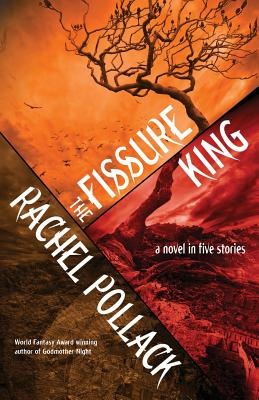 Rachel Pollack, the prolific author who wrote award-winning science fiction and fantasy, as well as bestselling books on tarot, died on April 7 at age 77. In 1980, Pollack published Seventy-Eight Degrees of Wisdom, a guide to tarot that has never gone out of print and has been described as the "bible of tarot." In 1989, she won the Arthur C. Clarke Award for her novel Unquenchable Fire, and its sequel, Temporary Agency, won the Nebula Award for Best Novel in 1994. Her book Godmother Night won the 1997 World Fantasy Award.
Rachel Pollack, the prolific author who wrote award-winning science fiction and fantasy, as well as bestselling books on tarot, died on April 7 at age 77. In 1980, Pollack published Seventy-Eight Degrees of Wisdom, a guide to tarot that has never gone out of print and has been described as the "bible of tarot." In 1989, she won the Arthur C. Clarke Award for her novel Unquenchable Fire, and its sequel, Temporary Agency, won the Nebula Award for Best Novel in 1994. Her book Godmother Night won the 1997 World Fantasy Award.
Born in Brooklyn, N.Y., in 1945, Pollack began her career as an author with the short story "Pandora's Bust," published in 1971 in Michael Moorcock's magazine New World. Pollack transitioned shortly thereafter, and while living in the U.K., she became an activist and coordinated a group within the Gay Liberation Front that in 1972 released the first trans manifesto, called "Don't Call Me Mister You Fucking Beast."
"Rachel was a crystallizing force in the trans movement and so many other areas," remembered British writer and cultural critic Roz Kavenay. "She was perpetually an inspirational figure, and was one of the first professional trans writers who had a career while out, and proved that it was possible to do that."
In the 1990s, Pollack helmed a 20-plus issue run of the comic series Doom Patrol for DC's imprint Vertigo, taking over from Grant Morrison. During her Doom Patrol run, Pollack created the character Kate Godwin, "considered to be the first transgender superhero in mainstream comics," the Guardian reported.
Writer and historian Morgan M Page said of Pollack's place in the tarot world: "Quite simply, Rachel was the greatest living authority on the tarot." She was a member of the American Tarot Association, the International Tarot Society, and the Tarot Guild of Australia. She taught at the Omega Institute for Holistic Studies, created her own tarot decks, and wrote the books for The Vertigo Tarot and Salvador Dali's Tarot, among others.
Author Neil Gaiman, a friend of Pollack since the 1980s who visited her shortly before her death, wrote: "Rachel was a beloved writer of fantasy, but I prefer to describe her as a magical realist. She wrote these wonderful books of heightened reality and magical worlds where she would concretize metaphor." Her most recent novel was The Fissure King, published in 2017.
Read what writers are saying about their upcoming titles


